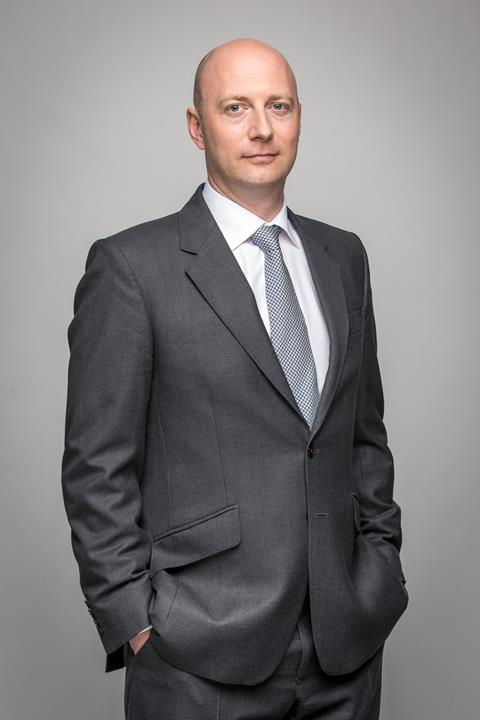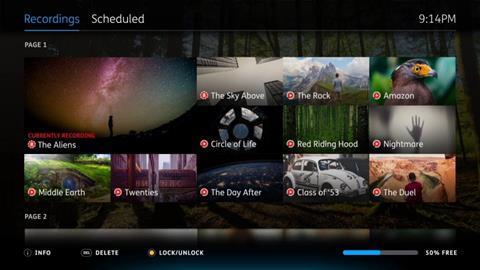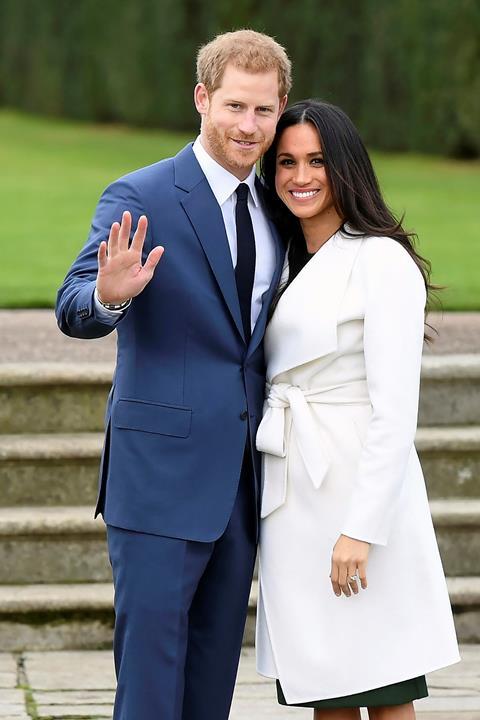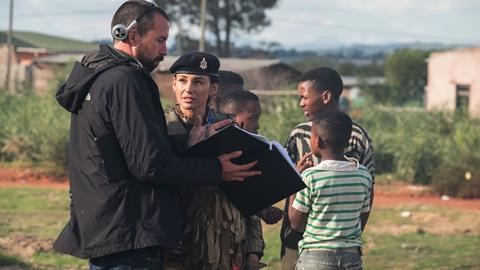BBC CTO Matthew Postgate on the broadcaster’s ambition to become an internet broadcaster and the “very real” security threat faced by media organisations.
“There is no such thing as a normal day at the BBC,” says BBC Chief Technology Officer Matthew Postgate.

“The work can extend to thinking about the capability of the division, working with teams, meeting suppliers, traveling to engineering bases across the UK. The BBC is incredibly intellectually varied, which is the reason I’ve stayed so long. Lots of my time is spent with other parts of the BBC working on how we reinvent the BBC for this next phase of its history.”
Postgate’s biggest concern reflects the concerns across the entire industry. “Information security risks are very real,” he says. “Media are used to reporting conflicts from the side lines, and now we’re in the frontline.”
Postgate also notes that the threat of competition is now coming from new players.
“The rate of change outside the industry is increasing,” he says. “The question is, how can we deal with that. How do we approach recruiting in order to bring in the right skills to deal with that sort of change? I’d say that the BBC was fortunate that it began its digital transition early 1996 – we have a good foundation,” he says.
“But it’s still the beginning of the game. The BBC’s been dealt a good hand of cards, but it’s critical that we play them intelligently at this point.”
Postgate joined the BBC in 2003, as part of the corporation’s mobile team, which he became the Controller of in 2007. Prior to joining BBC, he worked as a telecommunications consultant, and then for the digital consultancy Rufus Leonard as an emerging channel strategist, working on accounts for the Royal Mail Group, Shell and BT among others.
Over the course of his career at the broadcaster he worked across a number of areas in technology and operations. Before taking on the role of Chief Technology Officer, he was the Controller of the BBC’s Research & Development organisation. Additionally, he is a director of YouView Ltd, the joint venture between the BBC, ITV, C4, C5, BT, Talk Talk and Arqiva that is developing a next-generation hybrid television platform.

The common thread of his work has been looking at the ways that changes to technology would affect the BBC. “I entered the workplace as the internet was just taking off,” says Postgate. “It’s something I was interested in at university – how the internet was going to change society.”
Postgate has performed a number of different roles in his time at the BBC.
“The BBC is one of those places you can move around and experience different aspects of it,” says Postgate. He moved from the mobile division to focus on emerging technology such as mobile, broadband, games, and was involved with the launch of iPlayer, the BBC’s on demand streaming platform. “I then began to take on corporate roles, first with R&D, then with Operations during the Olympics, and then joint ventures like YouView” he says.
He took charge of the BBC Engineering division in 2014 when he was named CTO. “It became clear that next phase of innovation would involve change further up the chain in workflows,” he says, “so in 2016 all aspects of technology across the BBC were brought together in a single organisation – BBC Design & Engineering,” which led to his current title of Chief Technology and Product Officer.
“This has an impact across all the BBC. All the technology and design groups have been brought together into one organisation. It’s not a CTO office specifically,” says Postgate.

As with any broadcast engineering organising, there is a strong emphasis on maintaining quality and staying on air. “There are always some moments that stand out more than others even for the BBC,” says Postgate. “For example, the single day in which we had both a royal wedding and an FA Cup Final.
”These are where the systems and the teams take it to a new level. I find those days to be quite quiet because everything I do will have been done well in advance,” he says. “It’s quiet, but in a way, that’s really nerve wracking,” he says.
Postgate says he has a close working relationship with the other members of the BBC’s Executive Board.
“We have tried to create a culture of shared responsibility among the executive committee,” he says. “Things like information security are cultural as well as technological.”
He emphasises the importance of being prepared for all eventualities. “It’s broadcasting so we should be looking to rehearse,” he says. “If you’ve got the executive committee trying to work out what to do in the case of an information security problem while it’s happening you probably have the wrong people working on it.”
He stresses the need for clarity and process in response to situations.
“When we do have incidents, we assess with the team if it’s audience impacting and if we need to bring in the executive team to deal with it,” he says. “Bringing in the executive team happens more in rehearsal than in actuality. We take that stuff really seriously we have systems and teams in place that we rehearse regularly,” says Postgate. “We need to be proactive, not reactive.”
So, what gets him up in the morning? “At the moment – my new-born child,” he laughs.
“I’ve only ever been interested in how technology affects society,” he continues. “And all of a sudden, theory is now practical.
”The current BBC Charter is defined as the ‘charter of transition’ for us. It’s about getting to work and making it happen. The pace of change feels like it’s happening very quickly – there’s a lot to do to help the BBC along that transition.”

Postgate says his focus in the near term is helping to, “move the BBC to being a digital experience and consolidating the design and engineering skill the BBC will need during this charter period.”
As with the rest of the industry, finding the right people to work in the changing environment of media requires significant focus. “We recruit across a broad bit of skills,” he says. “From software engineering; product management and design; data scientists; copy writers.
“That talent challenge is our single biggest business issue. I’d love it if it were only one job family, but it’s not, it’s across the board.”
In terms of a long-term strategy, the transformation of the BBC is at the top of Postgate’s agenda. “We really need to unlock the potential of new technology to allow the BBC to realise it’s mission in new way,” he says.
“We need to be focussed on social impact instead of shareholder impact, That’s the big difference between the BBC and what’s normally considered to be its peers – the commercial media companies. It’s exciting to see the way that change will happen.”
“The competition is now coming from companies like Netflix and Alibaba” – Matthew Postgate, BBC
Industry challenges
Postgate views the greatest challenging facing the broadcasting industry as coming from new players. “I think broadcasting is a term related to enterprises that do quite different things,” he says.
“In the case of mainstream broadcasting the challenge is how can they operate at a scale and speed that’s very different than what they’ve done before. The competition is now coming from companies like Netflix and Alibaba.
”Traditional broadcasters will need to adjust their sense of scale both chronologically and geographically, otherwise the landscape will belong to a new set of actors.”
He feels that the challenges go beyond technological capability. “It’s a cultural issue,” says Postgate. “It’s about a sense of urgency and ambition inside those organisations.”
“For the BBC, it’s always a work in progress,” he says. “We want to reach half a billion people globally. We aim to be an internet broadcaster by the end of the charter. Across the Executive Board we have taken this on as a collective responsibility. How are we unlocking the power of multi-skilled teams, how do we adjust all processes – creative, financial, etc. to bring about the change we need?”
Read more CTO Series: Paul Cheesbrough, 21st Century Fox
Interested in Cyber Security? The IBC2018 Cyber Security Forum on Thursday 13 September is a one-day, invitation-only event aiming to bring together executives for a candid discussion on cyber security.




























No comments yet